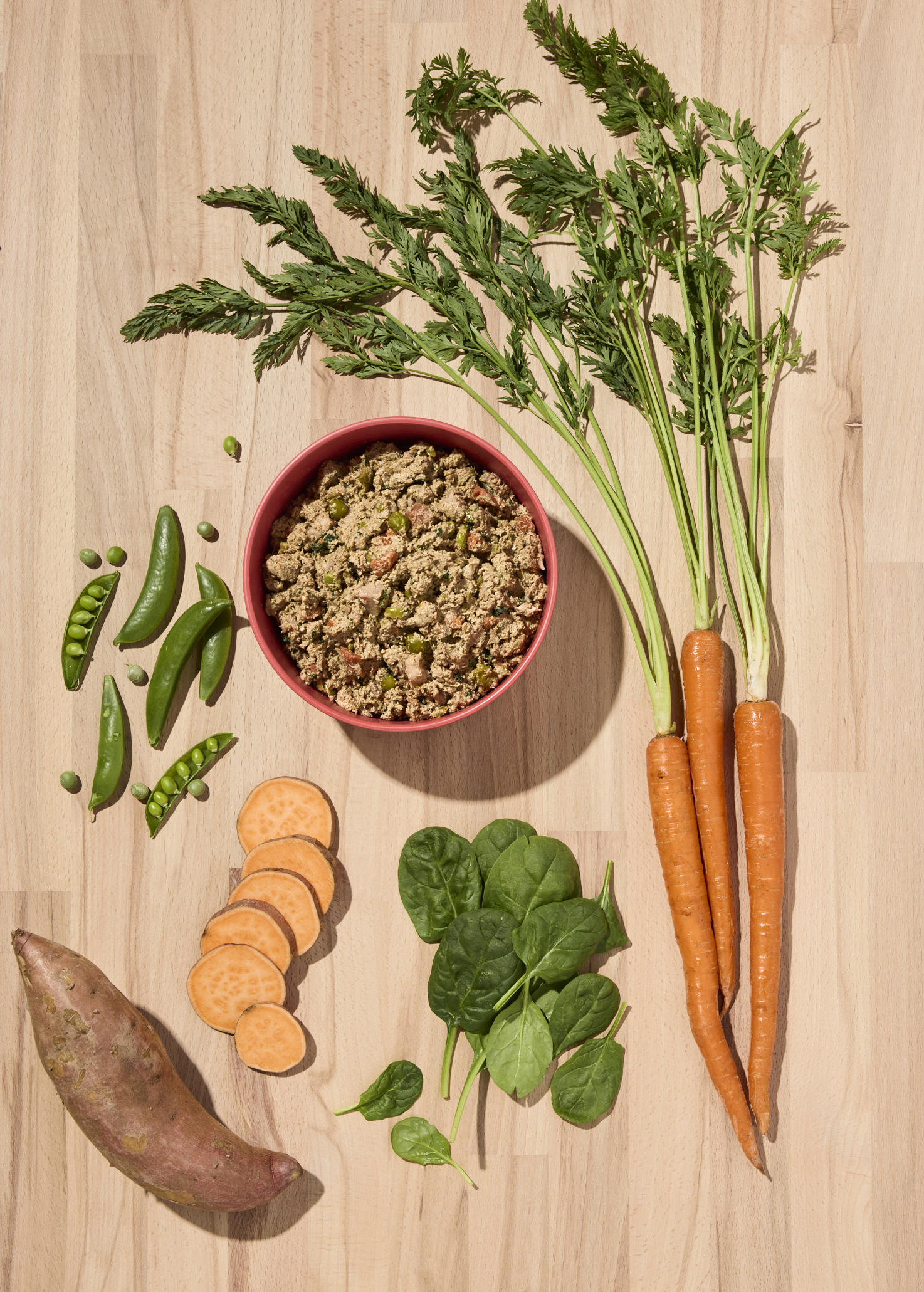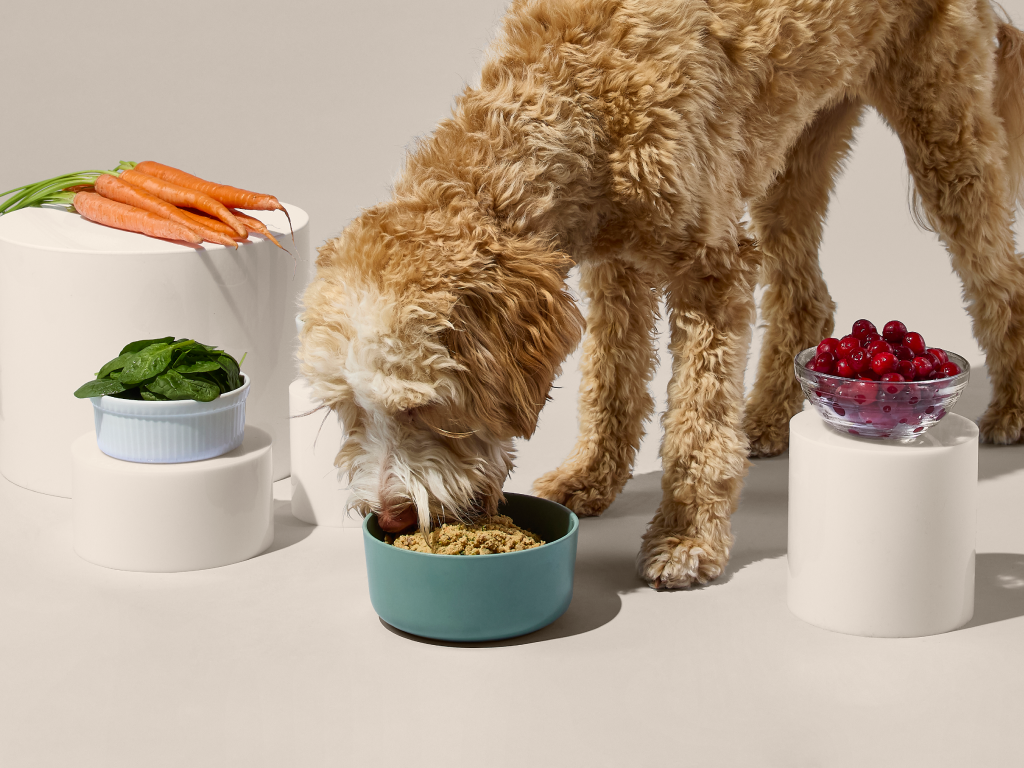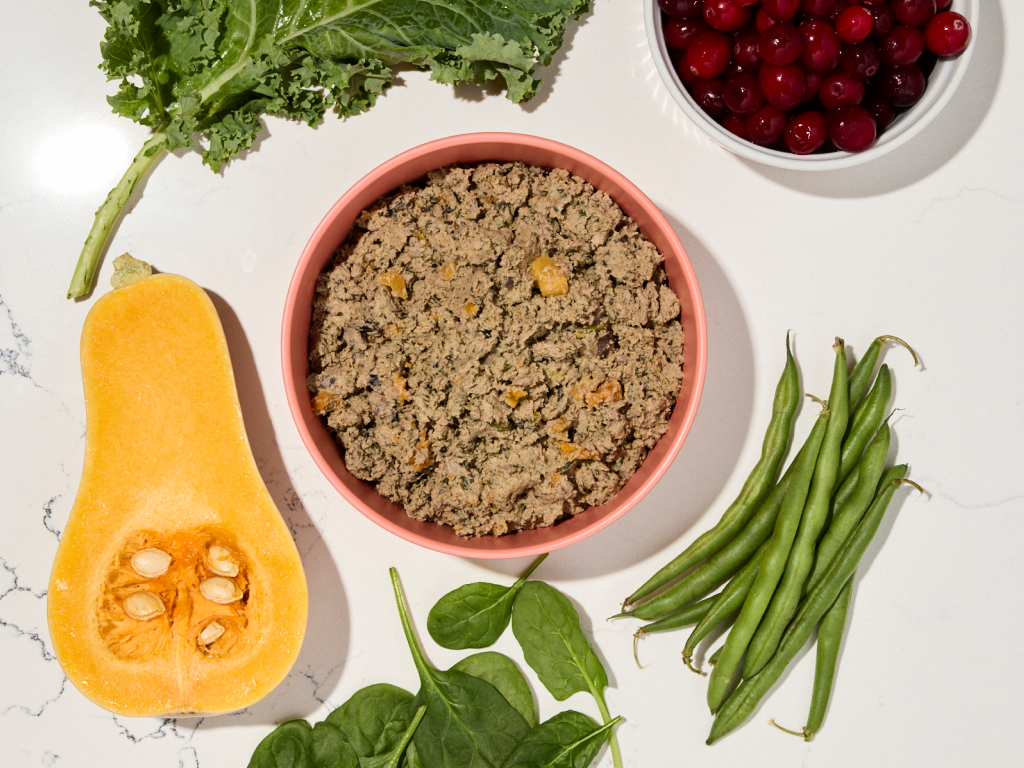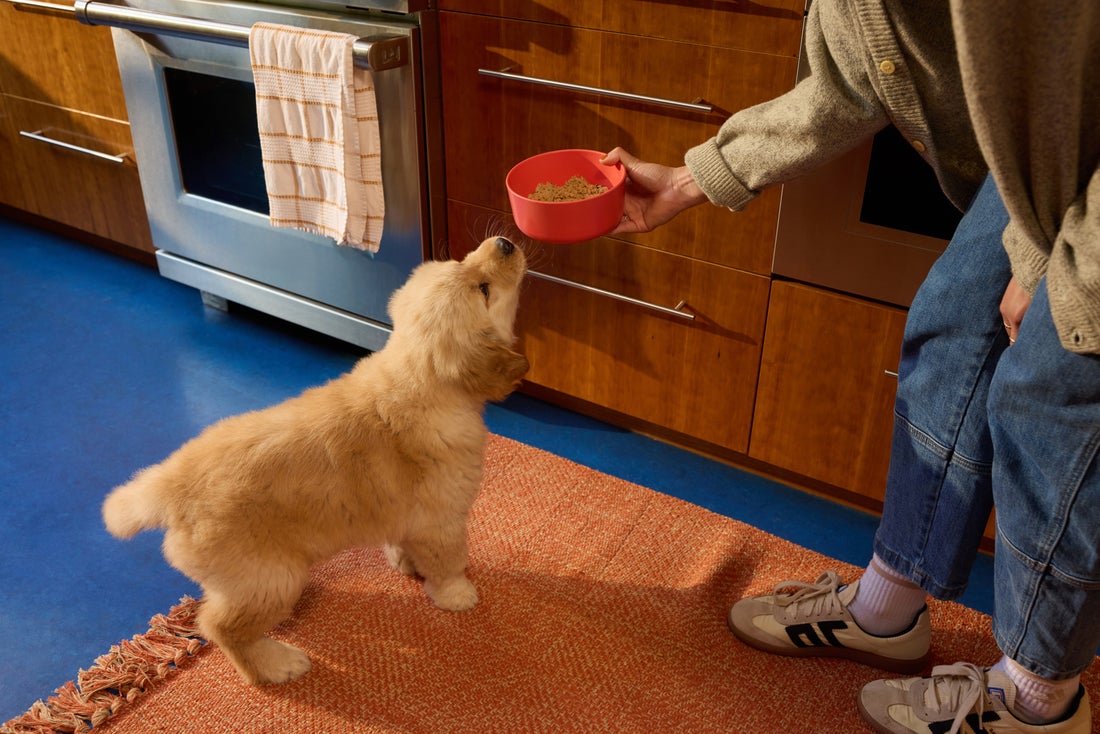Hey Ollie blog readers! We’re offering you an exclusive 60% OFF your starter box! Try now!
When browsing dog food aisles or online retailers, you’ll encounter various marketing terms like “holistic,” “all-natural,” “premium,” and “gourmet.” With so many options available, it can be overwhelming to determine what’s genuinely best for your pup’s health and well-being. Read on to learn more about holistic dog food and what it means in relation to your pup’s nutrition.
What Does “Holistic Dog Food” Actually Mean?
In general terms, “holistic” refers to considering all parts in relation to the whole—similar to holistic medicine, which takes into account a person’s overall well-being when addressing specific health concerns.
However, when it comes to dog food, the term “holistic” has no regulated meaning whatsoever. Neither the Food and Drug Administration (FDA) nor the Association of American Feed Control Officials (AAFCO) provides oversight for this marketing term. Pet food manufacturers simply use “holistic” on packaging to suggest their product considers your dog’s complete nutritional needs or offers a more natural approach.
Unfortunately, “holistic dog food” doesn’t guarantee any specific nutritional standards or ingredient quality. It’s essentially a marketing tool designed to influence purchasing decisions.
Better Alternatives to “Holistic” Dog Food
If you’re seeking healthier dog food options for your pup, focus on these evidence-based alternatives instead of marketing buzzwords:
Human-Grade Dog Food
Human-grade dog food means the food is made with ingredients that are legally suitable for human consumption. This designation ensures:
- Higher ingredient quality standards
- More rigorous manufacturing processes
- Greater transparency in sourcing
- Reduced risk of contamination
Fresh Dog Food Benefits
Fresh dog food offers several advantages over traditional kibble:
- Enhanced digestibility: Fresh ingredients are easier for dogs to process
- Higher nutrient retention: Minimal processing preserves vitamins and minerals
- Better palatability: Dogs typically prefer the taste and texture
- Customizable nutrition: Many fresh food services offer personalized meal plans
Feeding dogs a diet made with natural, real ingredients, such as beef, chicken, lamb, peas, spinach, carrots, and blueberries, can promote heart health, increase energy levels, make coats shinier, improve breath, enhance eyesight, and positively impact stool quality.
Best Natural Puppy Food Options
Growing puppies need more calories, fat, protein, and essential nutrients than adult dogs. Look for natural puppy foods that feature:
- High-quality animal protein as the first ingredient
- Appropriate fat content for growth and development
- Essential fatty acids for brain and eye development
- AAFCO certification for complete and balanced nutrition

Premium Dog Food Subscription Cost Comparison
When evaluating fresh and premium dog food options, consider these factors:
Cost Considerations
- Fresh food services: Typically start around $2 per meal
- Premium kibble: Generally ranges from $1 to 3 per day
- Human-grade options: Usually cost more than traditional kibble but offer superior ingredient quality
Value Assessment
While premium options cost more upfront, they often provide:
- Better digestibility (potentially requiring smaller portions)
- Improved health outcomes (possibly reducing veterinary costs)
- Enhanced quality of life for your dog
What to Look for Instead of “Holistic” Labels
Essential Nutritional Components
High-Quality Protein Sources
- Named animal proteins (chicken, beef, salmon)
- Avoid generic terms like “meat meal” or “by-products”
Digestible Carbohydrates
- Whole grains or vegetables
- Avoid excessive fillers like corn or wheat
Healthy Fats
- Sources like fish oil or sunflower oil
- Support skin, coat, and brain health
Important Certifications
- AAFCO compliance: Ensures nutritional adequacy
- Human-grade certification: Guarantees ingredient quality
- Third-party testing: Provides additional quality assurance
Healthy Dog Food Alternatives to Consider
Fresh Food Services
Companies like Ollie offer recipes formulated with veterinary nutritionists that contain:
- Human-grade ingredients
- Personalized nutrition plans
- Convenient delivery options
- No artificial preservatives or fillers
High-Quality Kibble
Look for natural dog foods that contain only plant, animal, or mined sources without artificial flavors, colors, or preservatives.
Raw or Freeze-Dried Options
These alternatives maintain nutrient density while offering convenience, though they require careful handling and storage.

Making the Right Choice for Your Dog
When selecting dog food, prioritize:
- Ingredient quality over marketing terms
- AAFCO nutritional standards compliance
- Your dog’s specific needs (age, size, health conditions)
- Veterinary guidance for optimal nutrition
Remember that the best dog food is one that meets your pup’s individual nutritional requirements while fitting your budget and lifestyle.
Take Action for Your Dog’s Health
Ready to upgrade your dog’s nutrition? Consider exploring human-grade fresh food options that prioritize quality ingredients and personalized nutrition. Ollie’s recipes offer a convenient way to provide your pup with high-quality nutrition delivered to your door.
Visit myollie.com to create a customized meal plan tailored to your dog’s specific needs and preferences.
Frequently Asked Questions
Q: Is expensive dog food always better?
A: Not necessarily. Focus on ingredient quality, nutritional completeness, and AAFCO certification rather than price alone.
Q: How do I transition my dog to a healthier food?
A: Gradually mix increasing amounts of new food with current food over 7-10 days to avoid digestive upset.
Q: Are grain-free diets better for dogs?
A: Only if your dog has specific grain allergies. Most dogs digest whole grains well, and grain-free diets have been linked to heart issues in some cases.
Q: How much should I spend on dog food monthly?
A: Budget 10-15% of your pet care expenses on quality food, as proper nutrition can reduce long-term veterinary costs.
Q: Can I make homemade dog food?
A: While possible, it requires careful nutritional planning. Consult with a veterinary nutritionist to ensure balanced meals.
Tagged As:

The nutrition your dog needs,
the food they want.

Enjoying our articles? Subscribe our Newsletters and get new articles directly to your inbox
You might also like
29 September 2025
6 MINS READ
How Is Fresh Dog Food Made?
Unlike standard kibble that undergoes high-heat processing, fresh dog food maintains the natural integrity of ingredients while avoiding artificial additives and fillers. But what exactly goes int…
by Ollie Pets
29 September 2025
7 MINS READ
Is Lamb a Good Protein for Sensitive Stomachs?
Lamb provides significant nutritional benefits for dogs, particularly for pups with sensitive stomachs who need a specialized diet. This protein-rich meat offers an excellent alternative for pups …
by Ollie Pets
29 September 2025
7 MINS READ
Top 10 Fresh Ingredients for Your New Puppy’s Bowl
As dog parents, we naturally want to provide our pups with a strong start in life. This means giving them nutrition that is able to support their rapid growth, abundant energy, and developing immu…
by Ollie Pets







